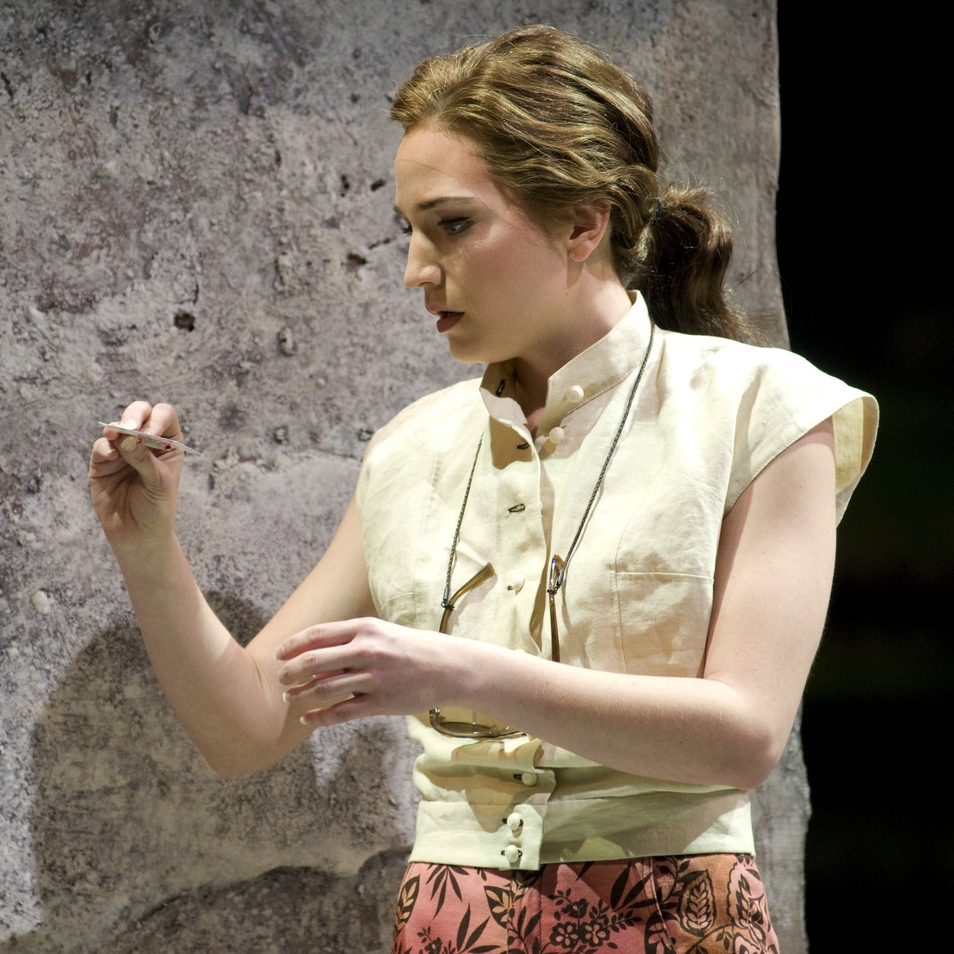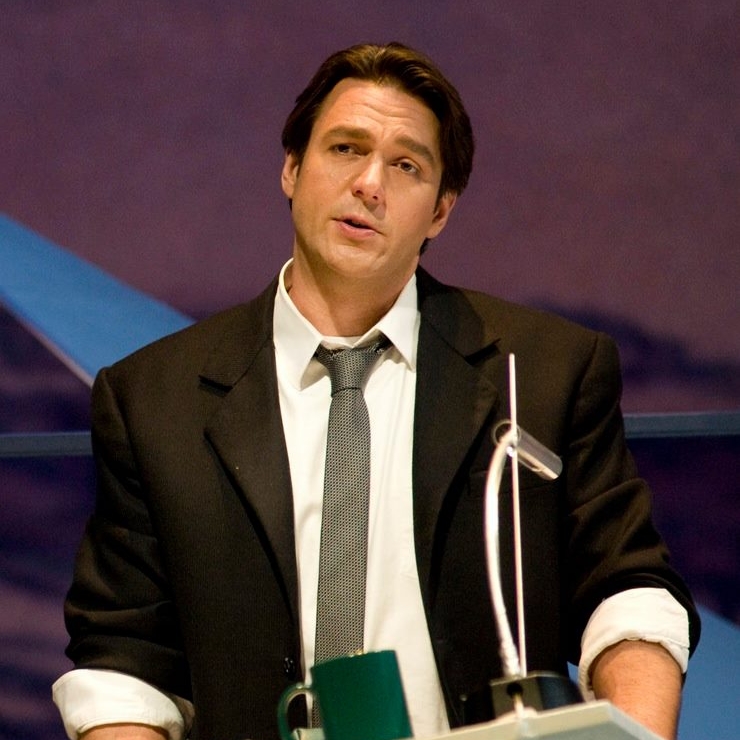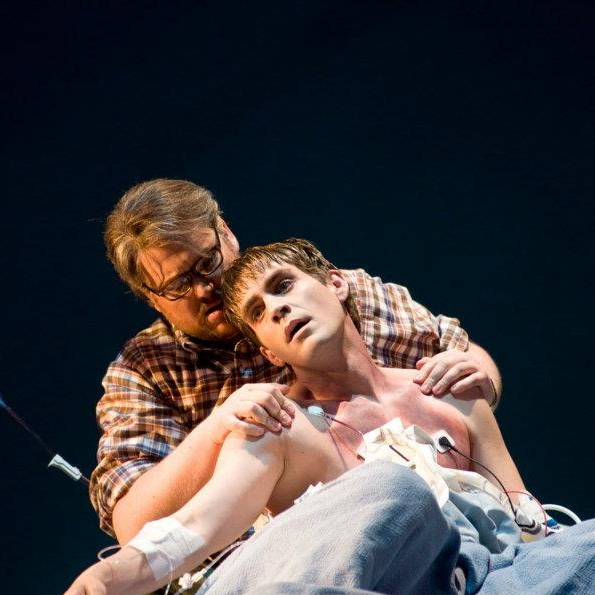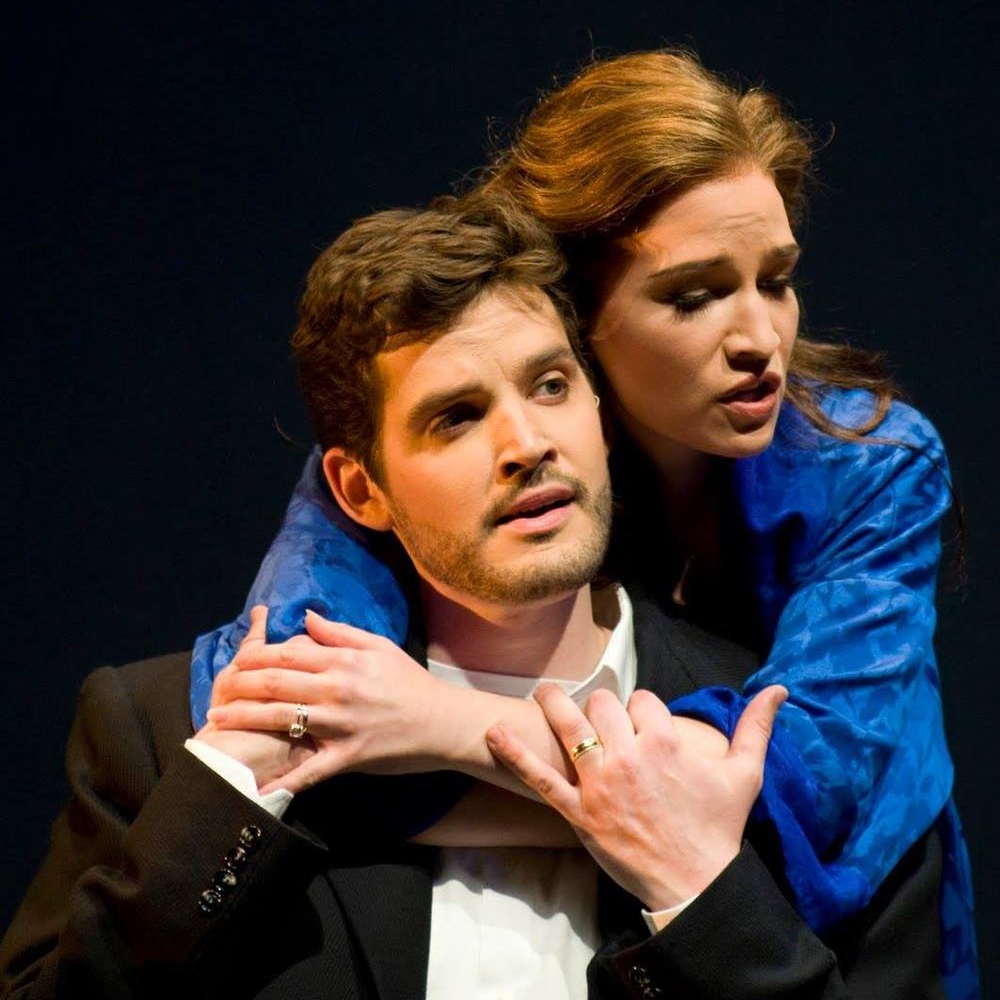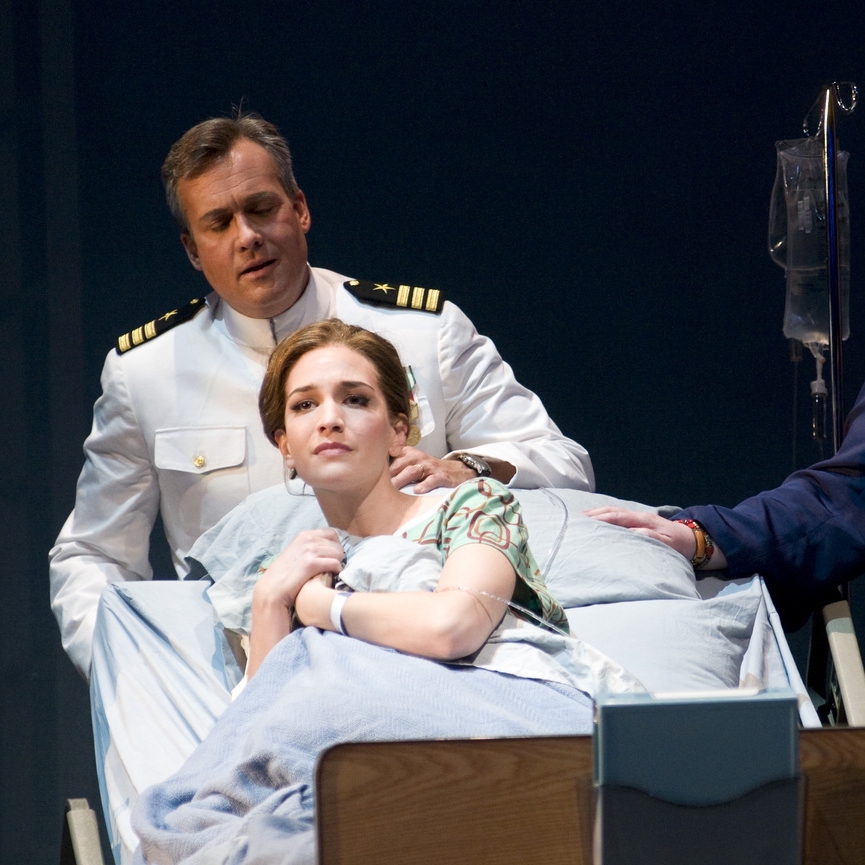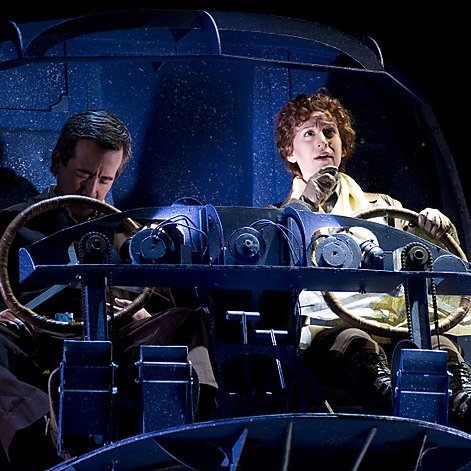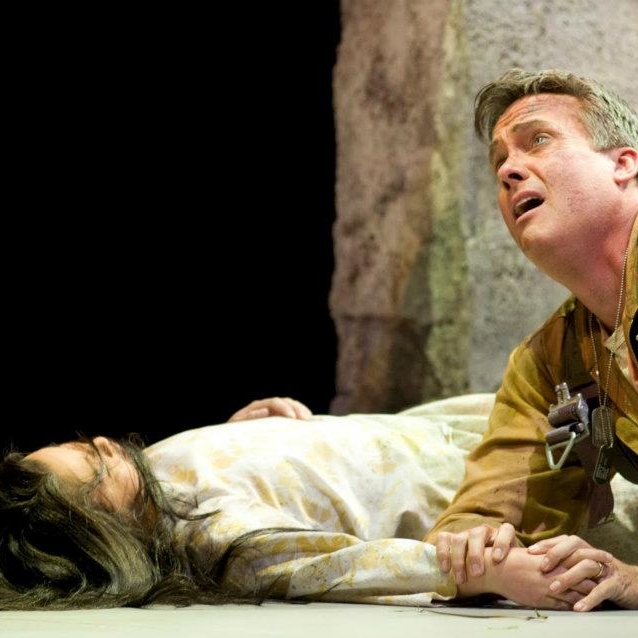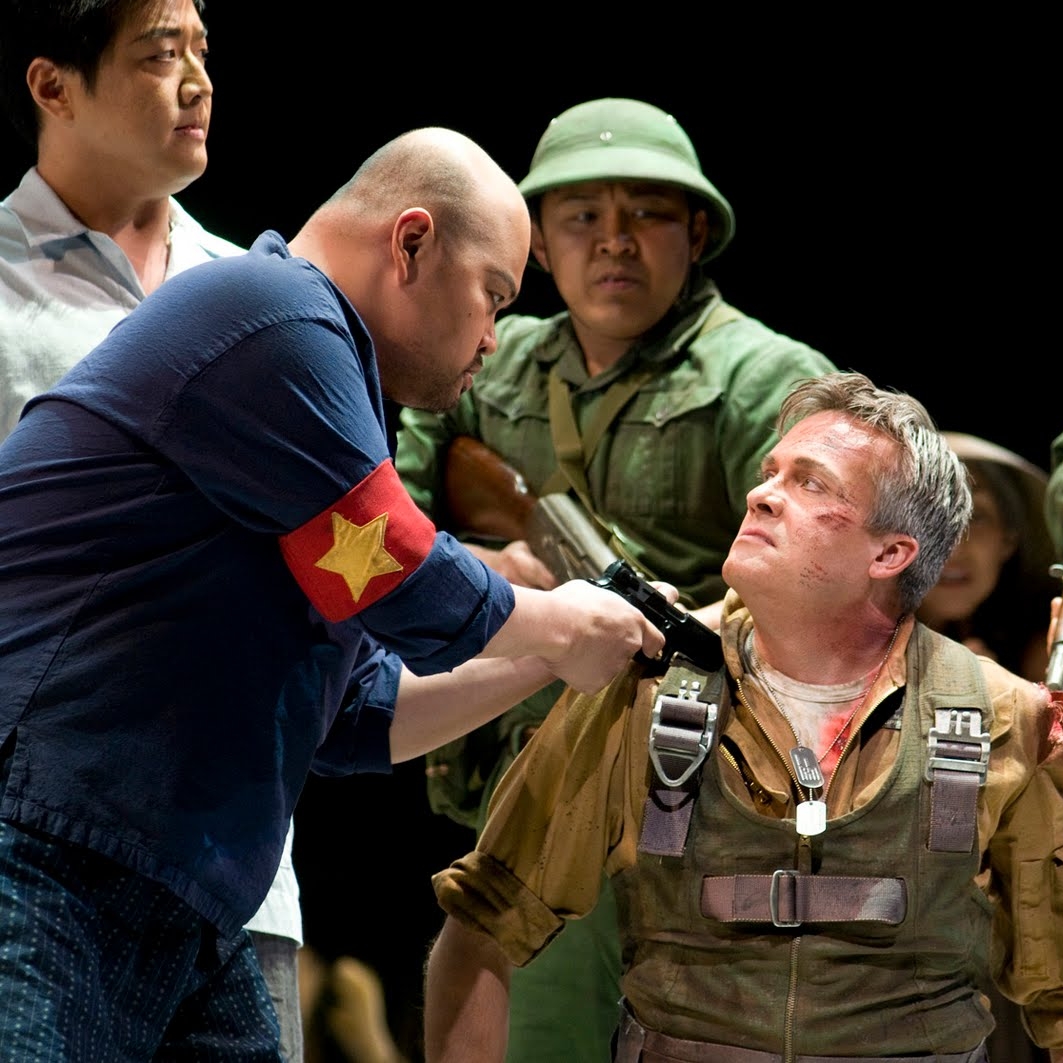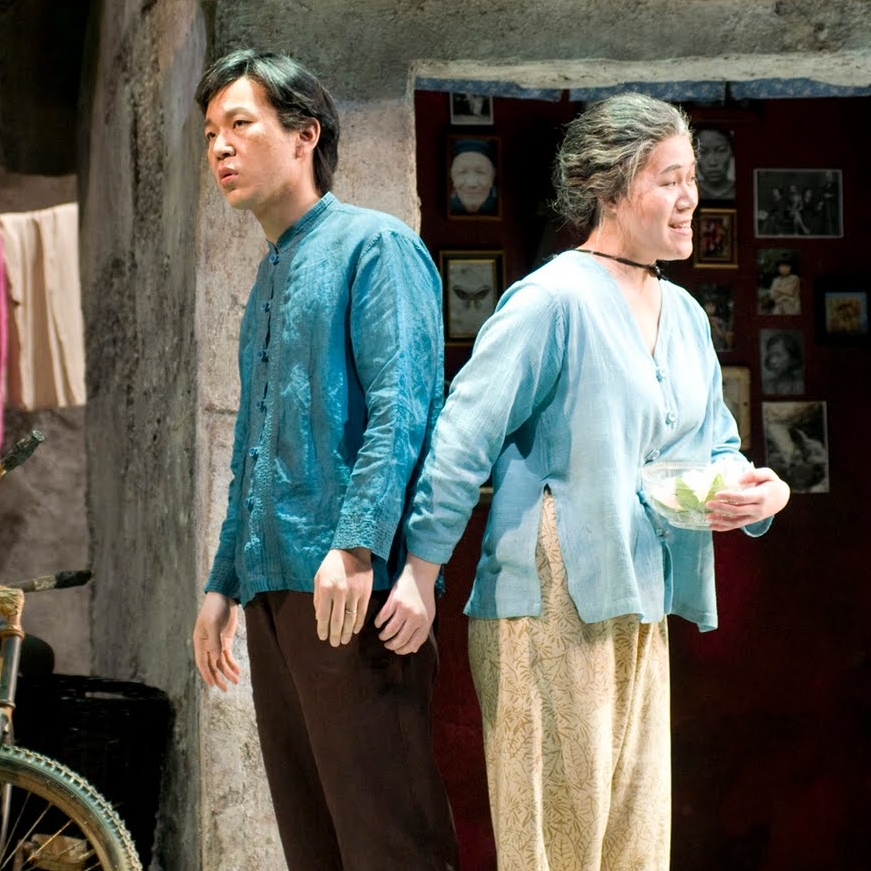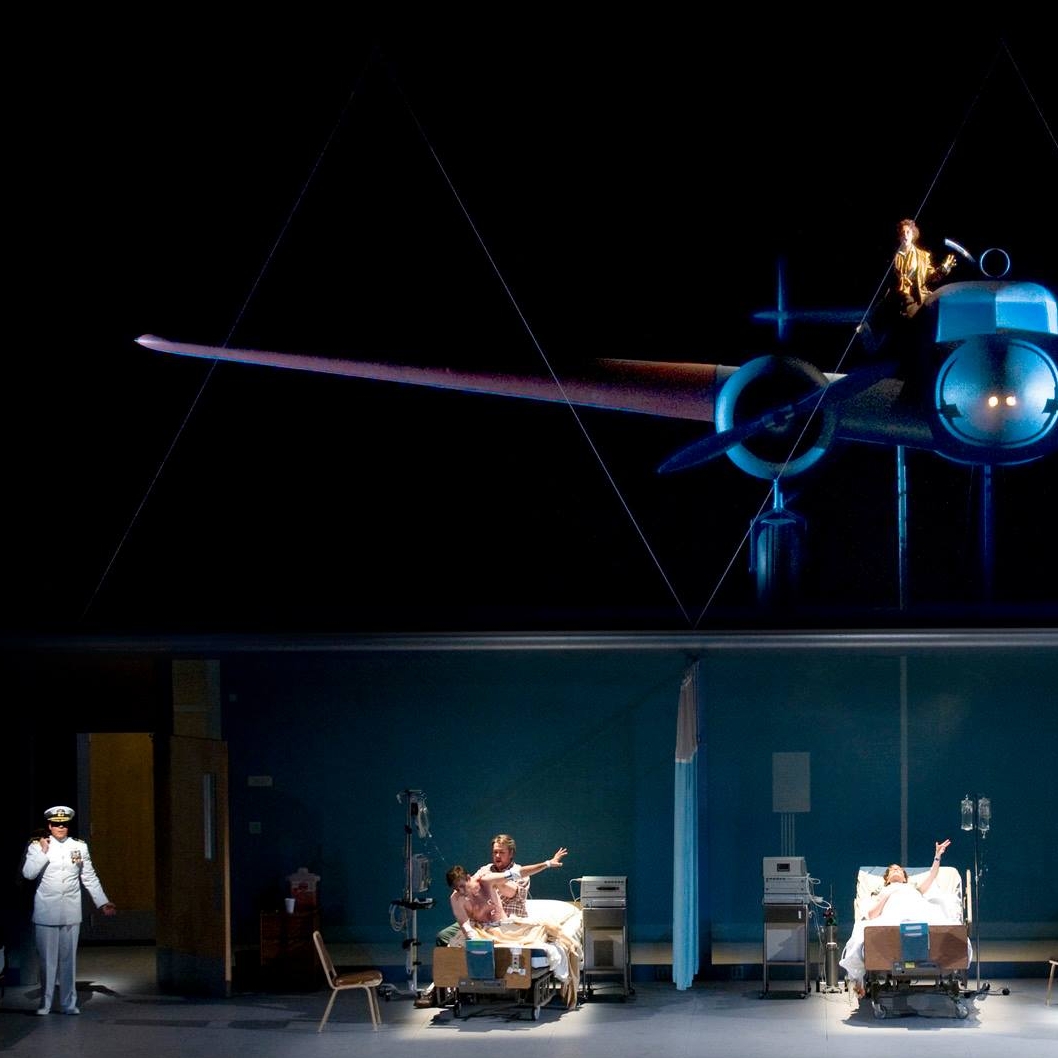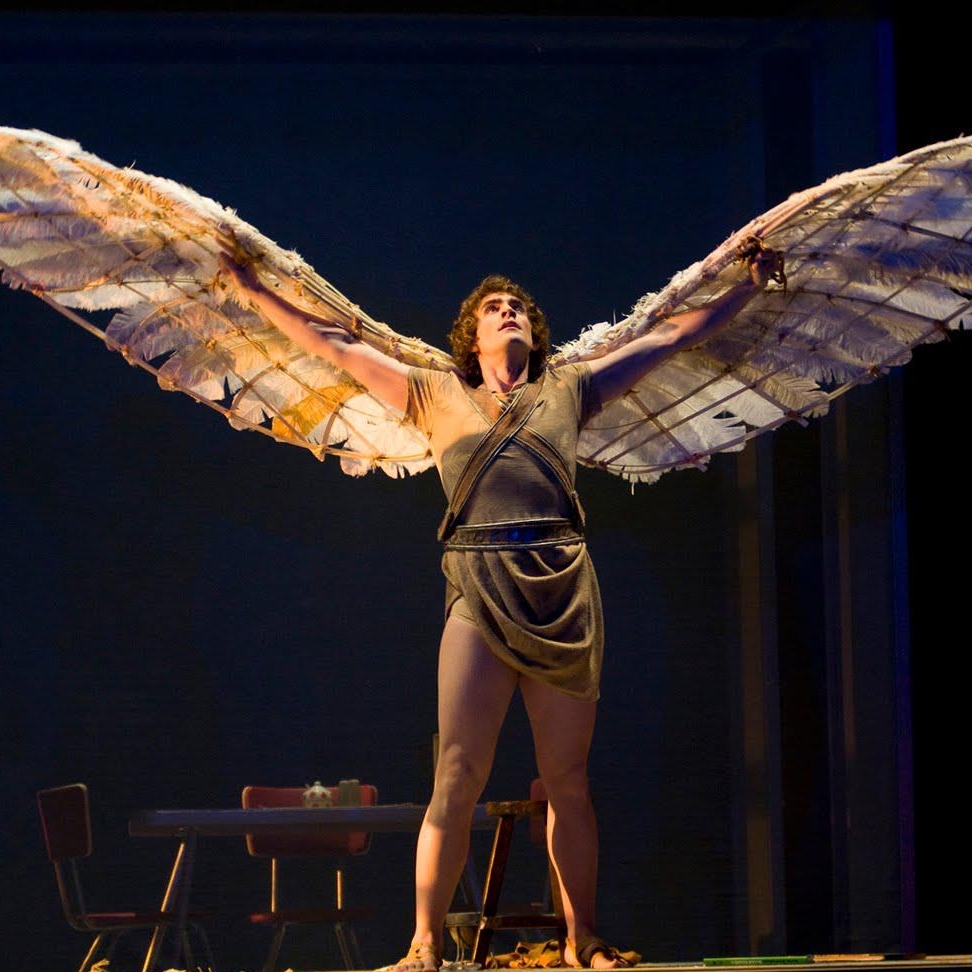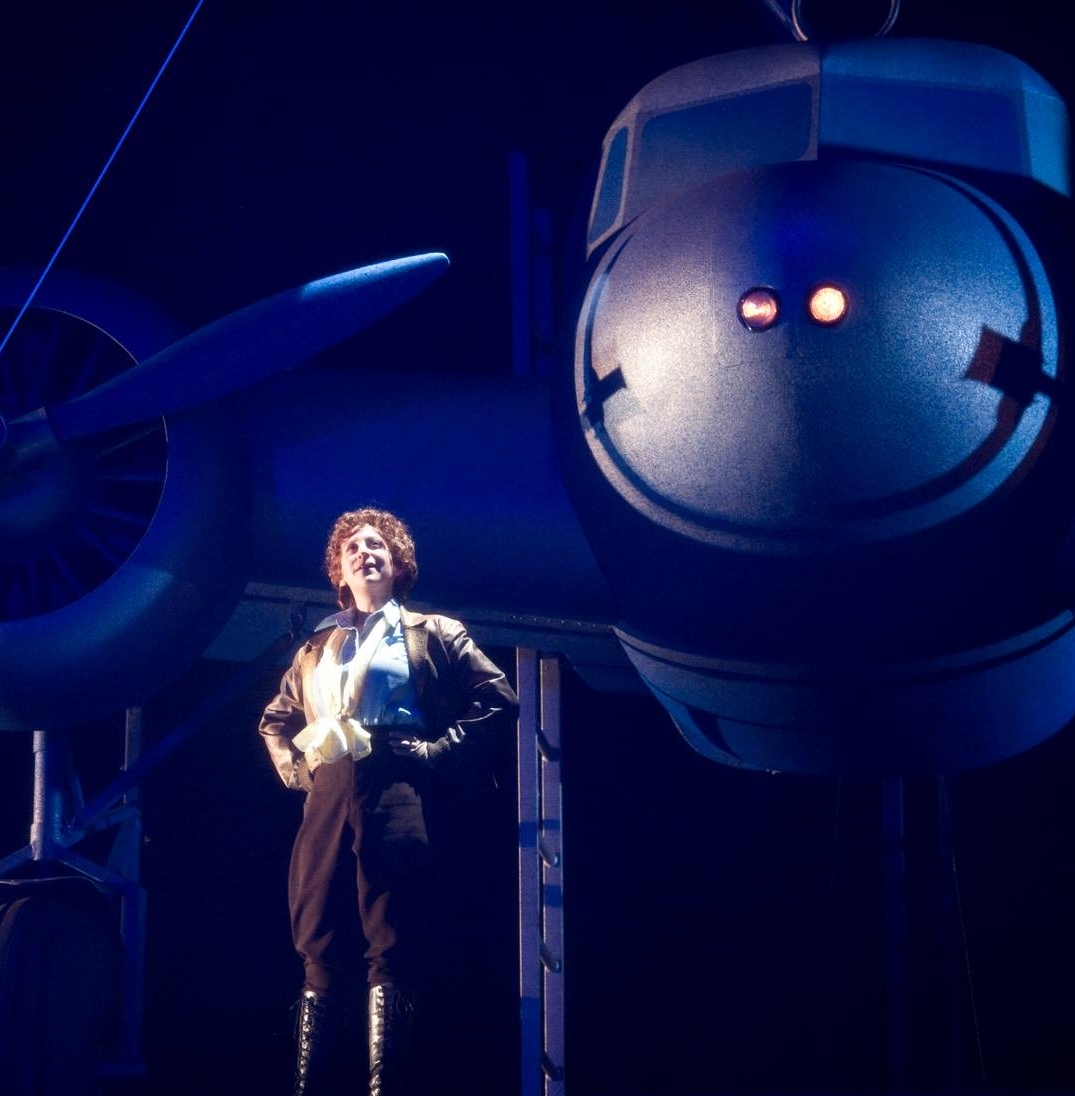AMELIA (2010)
A two act opera in six scenes
Duration: 120 minutes
First edition vocal score cover art.
Music Text
Libretto by Gardner McFall | Story by Stephen Wadsworth (E, V)
Scoring
- Original Instrumentation(44 players): solo voices S, S, S, S, Mez-S, M, T, T, Bar, Bar, Bar, B; supers ,2(I,II=picc).2(II=CA).2(I=Eb;II=bcl).2-2.2.2.1-timp.perc(2)-harp-pft-str(7.6.5.4.2 players)
- Condensed Instrumentation
(34 players): solo voices S, S, S, S, Mez-S, M, T, T, Bar, Bar, Bar, B; supers 2(I,II=picc).2(II=CA).2(I=Eb;II=bcl).2-2.2.2.1-timp.perc(2)-harp-pft(=synth)-str(5.5.4.2.1 players
Publisher / Licensing Agent
Peermusic Classical
Territory
Licensed by Peermusic Classical for all countries.
World Premiere
- Original Instrumentation: 2 Acts / 120 minutes / Premiere: Seattle Opera / Stephen Wadsworth / Gerard Schwarz
- Condensed Instrumentation: 2 Acts / 120 minutes / Premiere: Moores Opera House / Buck Ross / Brett Mitchell
The Flier (Lyric-S)
Young Amelia (Lyric-S)
Helen (S)
Amelia (Mez-S)
Amanda (M)
Young Boy / Icarus (T)
Dodge (T)
Paul (Lyric-Bar)
Daedalus / Father (B)
Trang / Nurse (Lyric-S)
Huy / Doctor (Bar)
Interpreter / 2nd Doctor (Lyric-Bar)
C.O. / Political Official (T)
Chaplain / Government Official / Priest (Bar)
NVA Commander / Grief Counselor (spoken)
3 NVA Army Soldiers (spoken)
Several Supers (mute)
Time and Place
The United States and Vietnam between the years 1965 and 1996.
Synopsis
A first time mother-to-be, whose psyche has been scarred by the loss of her pilot-father in Vietnam, must break free from anxiety to embrace healing and renewal for the sake of her husband and child in this original story unfolding over a 30-year period beginning in 1966. The opera interweaves one woman's emotional journey, the American experience in Vietnam, and elements of the Daedalus and Icarus myth to explore man's fascination with flight and the dilemmas that arise when vehicles of flight are used for exploration, adventure, and war. With an intensely personal libretto by American poet Gardner McFall, whose father was a Navy pilot lost during Vietnam, the opera traces, with honor and dignity, one Navy family's journey from loss to recuperation, paralysis to flight, as the protagonist, Amelia, ultimately embraces her life and the creative force of love and family.
Production Stills
Here
Links
Wikipedia | Libretto | Orchestral Suite | AGMA
Selected Notable Performances
Moores Opera House, Chicago Opera Theater, Chicago College for the Performing Arts
Press Digest:
Opera News declared Amelia to be "one of the top ten operas of the first decade of the 21st century." Online at Musical America, George Loomis wrote that "Hagen responds to the growing demands of the drama by ... broadening the expressive range of his music to accommodate the cascade of divergent emotions as the opera presses on to its conclusion—-turbulent dissonance one moment, compelling lyricism the next. The opera culminates in an ethereal life-affirming unaccompanied ensemble for the nine principal singers." In The Gathering Note, R. M. Campbell found "much to be admired in Hagen’s score. It is tonal, occasionally percussive, mildly dissonant, just enough to put him in the world of modern music. It deserves repeated attention...some of his best writing comes in the interludes that introduce both acts and separate the six scenes. This is potent music."
For The SunBreak, Roger van Oosten praised "the magnificent performances of Nathan Gunn as Paul and Kate Lindsey as Amelia. Gunn makes you feel the pain of a man whose marriage is nearly doomed by forces beyond his control and beyond time itself ... David Won, Karen Vuong, and Museop Kim are wonderful in their scenes in Vietnam: deeply felt, honest and humble ... Jordan Bisch is wonderful as a large lumbering dad who is devastated by the loss of a son. And, finally, powerhouse soprano Jane Eaglen." And the Opera Tattler found that "The text did not display the awkwardness that marks many contemporary operas. The words fit the music, and the deft overlapping of narratives condensed the plot without being confusing or tedious. Layering of the Icarus myth and the life of Amelia Earhart with the main story line worked surprisingly well."
In the Seattle Times review, Bernard Jacobson called Amelia "an achievement at once profound and hugely enjoyable" and praised Stephen Wadsworth's 'flawless' production, Schwarz's assured leadership, the 'stunningly good' Kate Lindsey, Nathan Gunn, and William Burden. In the New York Times, Anthony Tommasini described Amelia as a "a serious, heartfelt and unusual work; Hagen's music is harmonically lush and singable," and said that "there was not one weak link in the large cast."
Heidi Waleson, in the Wall Street Journal, described the work as "both highly original and gripping. ... Amelia is a modern opera with traditional values: Ms. McFall's multilayered libretto never loses sight of its story, and Mr. Hagen's restless, questioning music never loses its heart." George Loomis, in the Financial Times, wrote that "the expressive range of Hagen's music broadens memorably to accommodate the cascade of divergent emotions en route to a grand, life-affirming unaccompanied ensemble for the nine principal singers." Bernard Jacobsen, further in the Seattle Times, wrote, "Besides cleverly enabling the sung text to emerge with rare clarity, Hagen has fashioned a score of impassioned and compelling beauty. His melodic lines are eminently singable, and his sumptuous orchestral writing constantly enchants the ear. ...it stands as an achievement at once profound and hugely enjoyable." Ivan Katz, in the Huffington Post, wrote "Hagen's score is well-composed and, in many respects, a work of genius. He tends to write in a more facile manner for the women, but his writing for the men (especially tenor William Burden) is complex and highly effective."
